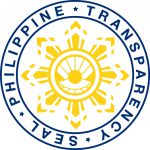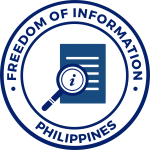Written by: Raymart V. Maruquez
Annually, the Philippine National Volunteer Service Coordinating Agency (PNVSCA) conducts its bilateral programming meetings with the international volunteer service organizations.
Last March 17, Country Program Head of the Voluntary Service Overseas Philippines (VSOP) Ms. Arlene Mahinay presented their accomplishments in 2020. Based on the report, 2 national volunteers and a total of 189 partner community volunteers were deployed in areas in Mindanao. These community volunteers are also called community resilience advocates where they conduct information dissemination campaigns and other volunteer service activities towards a more harmonious and conflict-free society.
In spite of the current health crisis, VSO’s People Resourcing Manager for Asia, Ms. Mari Luz “Maloy” Tiongson shared that the Philippines still receives applications for overseas placements even as the numbers have declined compared to other Asian neighbors. Travel to placements has been delayed due to risks related to COVID, and restrictions posed by host countries. In lieu of in-country assignments, some volunteers shifted to doing remote volunteering. On a positive note, there is continued interest in volunteering within the country.
PNVSCA’s Executive Director Donald James D. Gawe provided an update that the Philippine Coalition on Volunteerism, Inc. (PhilCV), a consortium of SEC-registered volunteer-involving organizations, commissioned the preparation of the Philippine Standards for Volunteering for Development based on the global standards launched in 2021. PNVSCA is supporting this by collecting comments and recommendations on the 1st draft from the NEDA regional offices, LGUs, NGAs and partner international and local volunteer service/involving organizations. Incidentally, VSOP is providing financial support to this initiative.
To have a common understanding of the value, components and standards of volunteering particularly with the youth, Ms. Mahinay suggested promoting the volunteering concept in schools and universities. There could be opportunities to incorporate the concept of volunteerism within the National Service Training Programme (NSTP) and in the universities’ extension programmes. ED Gawe mentioned that the PNVSCA has already started building partnerships with the assistance of state universities and colleges as possible entry point of this harmonization. He also requested the assistance of VSOP’s vast network in Mindanao in further strengthening the local volunteerism initiatives of the agency in the region. Chief Volunteer Service Officer Ms. Ela Victoria F. Sarmago reiterated PNVSCA’s call for support to the promotion and strengthening of local volunteering and will be tapping on VSOP’s experts to be part of the National Volunteerism Resource Pool (NVRP), a network of professionals with expertise on gender-responsive volunteer management systems to address the increasing demand for technical assistance in volunteer program establishment and management in the country. Both Ms. Mahinay and Ms. Tiongson welcomed the identified areas of collaboration. ED Gawe added that maybe VSOP and PNVSCA can initiate drafting a co-working paper to be submitted to international funding institutions.

The author is currently the Senior Volunteer Service Officer of the Program Coordination, Monitoring and Evaluation Division, Philippine National Volunteer Service Coordinating Agency.
Visit PNVSCA website (www.pnvsca.gov.ph) and PNVSCA Facebook (facebook.com/PNVSCA) for other stories and information on volunteering.




